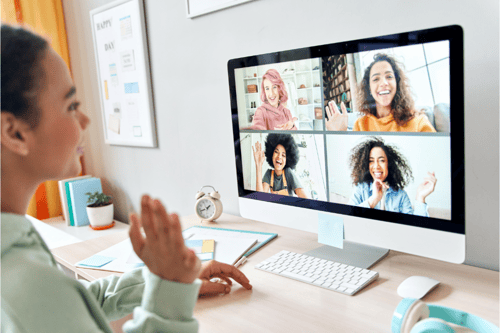
Top 10 Tips for Moderating Successful Focus Groups
Running successful focus groups requires a great moderator who can bring out the best in participants.
By being a great moderator, you'll be sure to get the insights you're looking for. In short, being a successful moderator in focus groups requires a particular skill set, as well as being a great people-person!
Read on to discover our top tips for moderating focus groups, whether they're face-to-face or online focus groups, to ensure you get the best possible outcomes from your project below...
10 top tips for successful focus group moderation:
1. Learn the skills required
Before taking on the role of a moderator, one must first understand what it takes to guide a productive conversation.
This includes honing people skills and developing the ability to tease out informative responses from a variety of people in a timely manner. Important skills an effective moderator should build on include listening skills, ability to be flexible, management and organisation skills.
2. Develop an interview schedule
First up, you need a solid discussion guide of course, but it’s also a good idea to have a plan and a timing structure for which questions you will ask and at approximately what point you will ask them during the session.
This will also help you keep the group on track for your available time. Questions should start out fairly general and then get more specific as the session progresses whilst adhering to the outlined discussion guide.

3. Include a variety of exercises
Being a moderator in a focus group means you should always try to vary the exercises in order to maintain interest and enthusiastic engagement among the participants. An example of this could be rating scales, role-playing or word associations to try and keep the session varied.
This can be especially critical in a longer focus group, which can run two to three hours, as opposed to a more typical 90-minute session.
4. Create a relaxed environment
It is important to help focus group participants feel comfortable right away by establishing a warm atmosphere. Personally greet participants and thank them for coming – make them feel comfortable. Give everyone a badge so that they know each other’s names and this can also make the environment feel friendlier.
5. Establish the rules at the start
Moderators should begin focus groups by going over some basic “housekeeping” rules, such as a recap of the focus group duration, what’s going to be included in the session and telling people if they need to turn off their phones.
If a session is taking place at a market research facility, you should be certain that participants are informed of that fact the session will be recorded at recruitment stage but also include a reminder before the session starts. Find out more about this in the MRS Codes of Conduct.
6. Conduct an ice-breaker
An ice-breaker can be a moderator’s best friend, as it helps to ease the participants into the swing of things.
Starting off by asking everyone to answer one or two simple questions – such as ‘where do you live?’ or ‘tell us something unusual about yourself’ – can help make them more comfortable with each other and more willing to provide in-depth answers during the focus group.
7. Moderate without actually participating
It’s important for the moderator to remain neutral and to avoid asking leading questions that might influence participant’s answers. Remember that the job is to guide the discussion and keep it focused, not to join in or dominate it.

8. Ask open-ended questions
Although you will be directed by your discussion guide, try not to ask ‘yes’ or ‘no’ questions. Moderators should take care to phrase questions in a way that encourages the participants to elaborate on their answers and that avoids misleading them.
9. Always seek clarity
Never just assume that you know what the participant means. If there is anything fuzzy or hard to understand about a person’s answer, the moderator should probe the respondent to get a clearer understanding of what he or she is trying to say.
10. Watch your body language
As a moderator in a focus group, it’s not just what you ask, but how you ask and how you listen. Your body language and posture should demonstrate to participants that you are interested in what they have to say.
Listening attentively and making eye contact helps participants understand that you find their input valuable, which encourages them to share even more.
Before you can put these moderation best-practices into practice, however...
... you need to know how to find the right participants for your focus groups!
This is where Angelfish Fieldwork comes in. Our goal is to provide you with the very best people for your qualitative research through our refined recruitment process for modern day researchers. If this sounds like something you'd be interested in, get in touch with us today!














